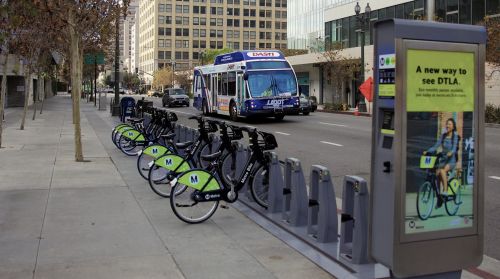PASADENA, Calif. (BRAIN) — A federal judge dismissed a case last week against the Los Angeles Department of Transportation about its collection of real-time data on micromobility users.
The American Civil Liberties Union, representing a group of plaintiffs, sued over the LADOT requiring e-scooter companies to provide real-time data to the city. The LADOT said the information is critical for mobility oversight, including ensuring equitable access of micromobility. U.S. District Judge Dolly M. Gee dismissed the ACLU case in the Central District of California court on Feb. 23.
Gee wrote in her dismissal that she understood the concern “with the unprecedented breadth and scope of defendants’ location data collection. But that alone does not mean it violates their constitutional or statutory privacy rights. This is an issue that may be more appropriately addressed as a matter of public policy, which is not for this court to opine.”
It follows Uber Technologies’ lawsuit against LADOT over the same concern about the sharing of real-time location data of its JUMP e-bike and scooter riders. However, Uber announced in June it withdrew the lawsuit because Lime acquired its bike and scooter share business in May. Uber reiterated at the time that “mass collection of precise geolocation data by government agencies deeply compromises consumer privacy, and we applaud the growing number of organizations” opposing this.
Filed last March in the same court as the ACLU suit, Uber said the LADOT unlawfully implemented Mobility Data Specification, allowing the city access to coordinates of share-riders in real time. Officially, Social Bicycles was the plaintiff in the Uber lawsuit. Social Bicycles operated JUMP, and Uber acquired Social Bicycles in 2018.




